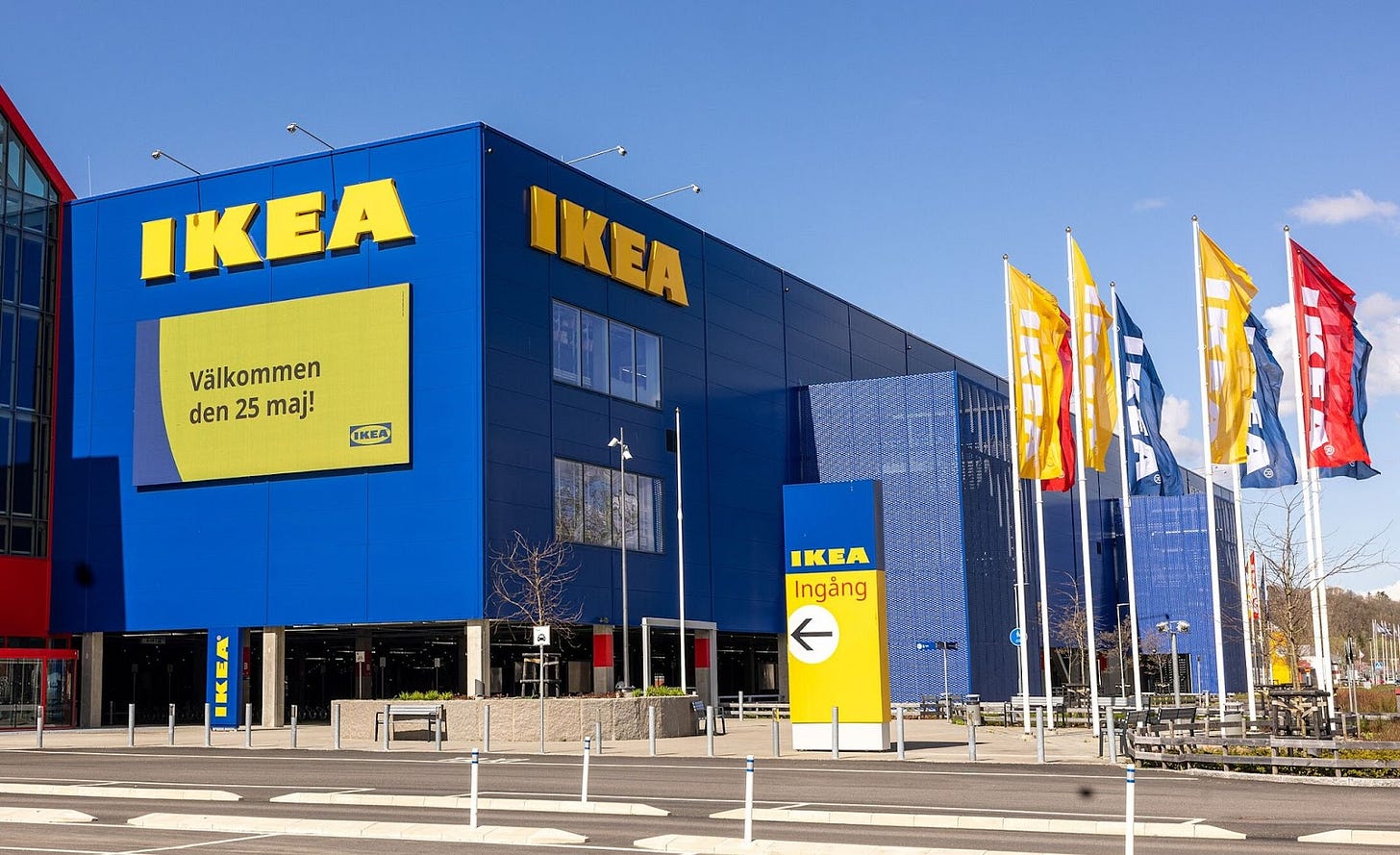Ikea is a Functional Industrial Institution
The Swedish furniture retailer has become the largest company of its kind in the world through unique design and manufacturing choices. It is however no longer led by its eccentric, driven founder.

In 2024, Ikea sold €45.1 billion worth of goods, making it the largest furniture and home furnishings company in the world—with an estimated one-tenth share of a fragmented global market—and among the largest companies in Europe.1 The company’s production volume is so high that, in the early 2010s, it was estimated to use about 1% each of the world’s entire annual production of commercial wood and cotton.2 Ikea’s products have made it a global cultural phenomenon due to several idiosyncrasies. The company offers minimalist, functional products influenced by Scandinavian design and assembled at home by the customer, packaged in a way intended to be easy for a customer to carry and transport themselves too. This simplified “do-it-yourself” product philosophy has allowed Ikea to scale up manufacturing of some of its most popular items into the hundreds of millions of units, resulting in unprecedentedly low prices.

